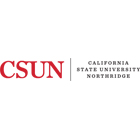- الأخبار والمقالات
- Find usIDP AustraliaIDP BahrainIDP BangladeshIDP CambodiaIDP CanadaIDP ChinaIDP EgyptIDP GhanaIDP Hong KongIDP IndiaIDP IndonesiaIDP IranIDP JordanIDP KenyaIDP KoreaIDP KuwaitIDP LebanonIDP MalaysiaIDP MauritiusIDP Middle EastIDP NepalIDP New ZealandIDP NigeriaIDP OmanIDP PakistanIDP PhilippinesIDP Saudi ArabiaIDP SingaporeIDP Sri LankaIDP Taiwan, ChinaIDP ThailandIDP TurkeyIDP UAEIDP VietnamIDP Corporate
- Social
- العربية
- Where we operate
- Courses
- Scholarships
- IELTS
- About IDP
- خدمات الوصول
- الأخبار والمقالات
- Find us
- Find us
- Find nearest IDP offices
- IDP Australia
- IDP Bahrain
- IDP Bangladesh
- IDP Cambodia
- IDP Canada
- IDP China
- IDP Egypt
- IDP Ghana
- IDP Hong Kong
- IDP India
- IDP Indonesia
- IDP Iran
- IDP Jordan
- IDP Kenya
- IDP Korea
- IDP Kuwait
- IDP Lebanon
- IDP Malaysia
- IDP Mauritius
- IDP Middle East
- IDP Nepal
- IDP New Zealand
- IDP Nigeria
- IDP Oman
- IDP Pakistan
- IDP Philippines
- IDP Saudi Arabia
- IDP Singapore
- IDP Sri Lanka
- IDP Taiwan, China
- IDP Thailand
- IDP Turkey
- IDP UAE
- IDP Vietnam
- IDP Corporate
- Social
- تبديل اللغة
- آي دي بي للتعليم /
- الجامعات والكليات /
- United States /
- California State University... /
- Master of Fine Arts in Art-...

Master of Fine Arts in Art- Visual Arts - Illustration
At CALIFORNIA STATE UNIVERSITY - NORTHRIDGE
المكان
United States
المؤهل الدراسي
Masters Degree
الرسوم
USD19056
(2025)
المدة
4 Semester(s)
موعد بدء الدراسة القادم
23 August 2025
درجة القبول
6.5
امتحان الآيلتسCOURSE_INFO
Illustration can be seen in many businesses including entertainment, publishing, merchandising, advertising and galleries. In this area of concentration, you will study illustration as both an art form and as a profession. Topics cover historical and contemporary illustration and its evolving styles and technologies. Professional preparation topics include portfolio and website development, goal setting, researching employment opportunities, self-promotion and business and trade practices. Students learn methods for creating new ideas and for the effective visual communication of those ideas. Projects emphasize a wide range of technical skills in fine art and digital media, conceptual problem-solving abilities, composition and design, self-expression and the development of a personal artistic vision.
- المنح الدراسية
- التدريب
رسوم البرامج الدراسية إرشادية فقط ويجب التعامل معها كدليل. للحصول على تكلفة دقيقة
Duration: 4 Semester(s)
Fees: USD19056
| موعد بدء الدراسة | المكان |
|---|---|
| Fall (August), 2025 | Los Angeles |
| Fall (August), 2026 | Los Angeles |
متطلبات القبول في California State University - Northridge
A bachelor's degree in Art from an accredited institution or a bachelor's degree with a minimum of 24 units of upper division Art, or the equivalency, as determined by the Visual Arts Graduate Committee.
Undergraduate GPA of 3.0 or higher. Students who do not meet the undergraduate GPA of 3.0 must complete ART 611 or ART 615 with a minimum grade of B.
Completion of 18 advisor-approved units of upper division and/or graduate coursework in the proposed emphasized area of concentration.
Completion of a minimum of 12 units of art history, 6 units of which must be upper division.
Successful completion of a Qualifying Portfolio Evaluation approved by the Visual Arts Graduate Committee, with emphasis in the proposed area(s) of concentration, a Statement of Intent and a resume submitted with the portfolio.
Pass a personal screening interview conducted by the Visual Arts Graduate Committee.
Duolingo English Test - 105
IELTS - 6.5, TOEFL Internet Based score - 79, TOEFL Paper-based score - 550
آخر موعد للتقديم
الموعد النهائي لتقديم الطلبات غير متاح تحدث إلى أحد مستشاري آي دي بي لمزيد من المعلومات التفصيلية
Further information
If you aren't eligible for the above entry requirements, you might ant to explore pathway options at California State University - Northridge. If you want to find out more, speak to our counsellors.
آراء طلابنا
لم نتلق أي تقييمات لهذه المؤسسة حتى الآن.
مختارة لك
- الدراسات العليا
- United States
- نوع التمويل: Other Discount
Your action plan
خطوة 1
Shortlist your courses
Choose the best three courses you’re most likely to pursue.
خطوة 2
Check your eligibility
Get an instant in-principle offer for courses with the IDP FastLane tag.
خطوة 3
Apply through IDP Live
Fill out the form once and use it to apply to multiple courses.
كيف تعمل خاصية FastLane بواسطة آي دي بي؟
مع "العرض المبدأي" من FastLane، ستعرف في دقائق إذا ما تم قبولك!
اختر المؤسسة والبرنامج الدراسي
أنشئ ملفك الأكاديمي
قدم طلبك للحصول على "عرض مبدأي"
ستصلك القرارات من المؤسسة (المؤسسات) التي اخترتها في دقائق!
استعد لتقديم طلبك مع مستشار تعليمي متخصص




